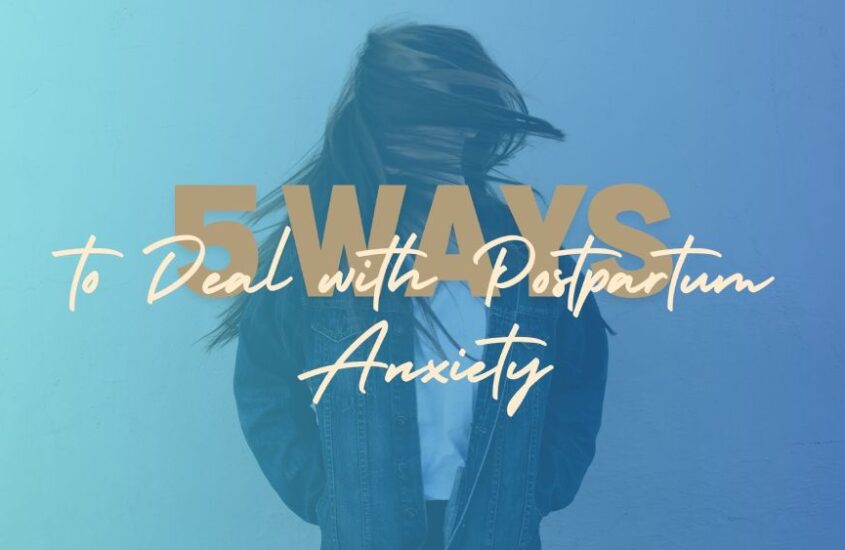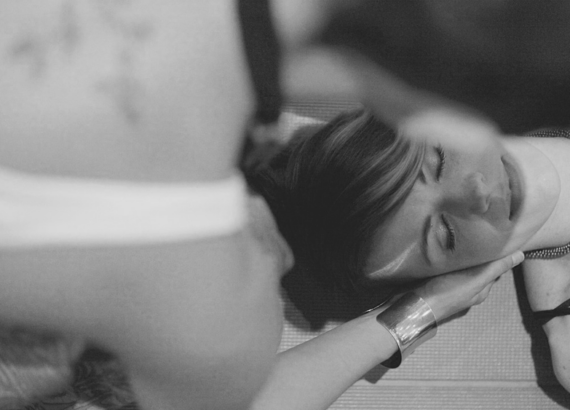5 Ways to Deal with Postpartum Anxiety

While mothers are often painted with a saintly brush, the reality is that motherhood is complex. New mothers, especially, undergo tremendous physical, emotional, and social changes after delivery. Even while a new baby may be a source of joy, new mothers often experience feelings of anger, sadness, or even grief. For many, motherhood brings worry and, in some cases, postpartum anxiety — a lesser-known condition characterized by feelings of insecurity and fear.
Today, we’ll examine postpartum anxiety and discuss 5 ways to deal with it.
What is Postpartum Anxiety?
After the arrival of a new baby, many mothers can feel overwhelmed by their concern about the welfare of their baby, and uncertain of their ability as a mother. In most cases, postpartum anxiety centers around threats to the baby’s welfare. Postpartum anxiety is typified by a generalized sense of dread, making it difficult to relax. Living on high alert like this can impact the mother’s health and her relationship with the child.
Common signs of postpartum anxiety may include:
- Intrusive thoughts
- Persistent worries
- Disruption in sleep
- Desire for isolation
- Mood swings
- Difficulty with delegation
- Lack of focus
- Loss of appetite
- Feelings of guilt or shame
1. Practice Grounding Techniques
Anxiety is forward-looking, feeding on uncertainty and the unknown. Accordingly, one of the best ways to manage anxiety is through grounding practices that emphasize the present moment. There are a wide variety of effective techniques, many of which rely on helping you reconnect to your body and your senses.
One such technique (5-4-3-2-1) asks you to engage your senses of sight, touch, taste, sound, and smell. Engage these senses individually, noting different things in your environment. Think of this as a ‘reset’ button for your focus. Another useful option is mindful breathing, which can be done by breathing slowly and with intention while being aware of the muscles in use and the sensation of air passing through your body.
2. Open Communication
Because anxiety is an alarm of sorts, it can be disarmed by paying attention to it in a focused, intentional way. Instead of ruminating on your worries, look for a safe way to express those feelings to someone you trust deeply, for example, or a support group. Tell them that you are just looking to process things out loud and that you’re not asking them to solve your problems.
3. Delegate Responsibilities
New mothers experiencing postpartum anxiety often find themselves caught between a rock and a hard place. They may doubt their own abilities while simultaneously resisting the efforts of others to help them. Consider finding ways to make yourself comfortable while delegating tasks. Invite someone over to help play with the baby and take care of things around the house, for instance.
4. Practice Self-care
Anxiety is partly a product of our body’s biochemistry. There are several things we can do to counteract anxiety chemically without resorting to medication, such as getting 15 to 20 minutes of sunlight, eating a healthy diet, and refraining from caffeine. Self-care also includes setting aside time for yourself and your interests, which may be difficult at times.
Another way to hack your body’s biochemistry is to enjoy cuddle time with your baby! Skin-to-skin contact helps promote the production of oxytocin, which is beneficial for combatting anxiety and reducing stress.
5. Cognitive Behavioral Therapy (CBT)
CBT is a type of therapy that emphasizes confronting and challenging unhealthy thought patterns. It can be particularly helpful in managing symptoms of postpartum depression and postpartum anxiety. In addition, CBT is a results-driven, action-oriented form of therapy and often delivers results quickly.
Schedule an Appointment
Are you finding it difficult to manage your thoughts and fears after childbirth? If so, it’s important to seek professional help through postpartum counseling. You may feel as if you’re expected to do everything on your own, but help is available. Reach out today so we can create a strategy to manage your postpartum anxiety.




